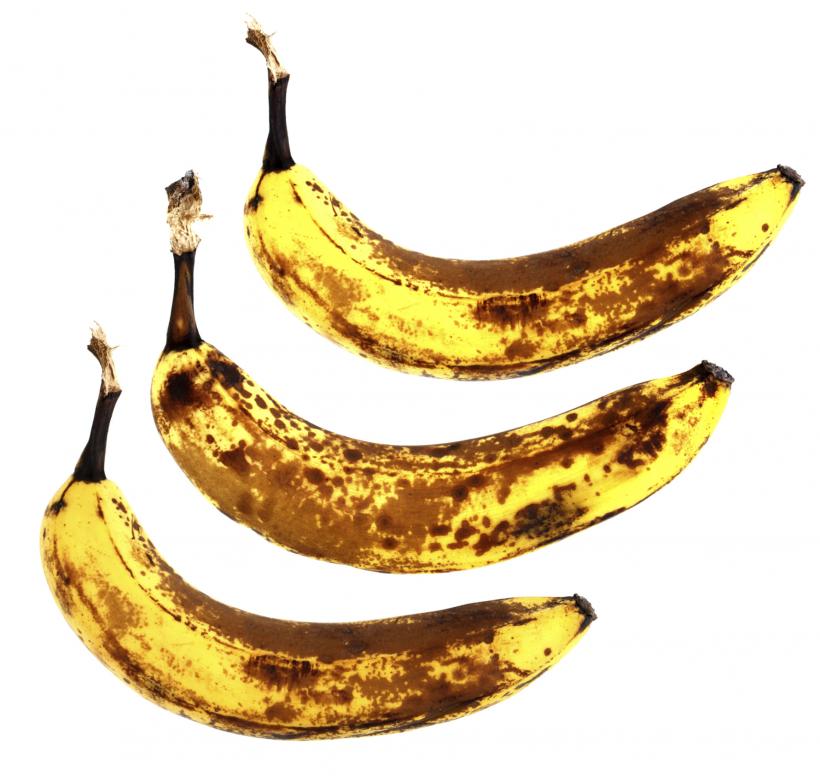
A super banana genetically modified to boost vitamin A—which aids in everything from growth and development to strong immune systems and vision—is poised to revolutionize African child mortality rates. Funded by the Bill and Melinda Gates Foundation, the Queensland University of Technology (QUT) is ready to commence a six-week human trial following months of research.
The engineered bananas—which boast a deeper orange-colored flesh—are enriched with alpha and beta carotene (hence the intensified color), which the body turns into vitamin A. Scientists dream of having the super-fruits growing in Uganda by 2020—bananas are a Ugandan staple crop—helping to counter a staggering rate of vitamin A deficiency.
Project leader professor James Dale says 650,000-700,000 children are dying worldwide due to a dearth in Vitamin A, with another 300,000 going blind. Dale has no reservations about the success rate of their beautifully bastardized bananas:
We know our science will work. Good science can make a massive difference here by enriching staple crops such as Ugandan bananas with pro-vitamin A and providing poor and subsistence-farming populations with nutritionally rewarding food. Hundreds of different permutations went into field trials up north and we tested everything to make sure our science worked here in Queensland. Now the really high-performing genes have been taken to Uganda and have been put into field trials there. There is very good evidence that vitamin A deficiency leads to an impaired immune system and can even have an impact on brain development. — Professor Dale, QUT statement
If Dale and his Aussie compatriots are right, the future of African farming could be fundamentally revolutionized, with commercial cultivation expanding to Tanzania, Kenya, Democratic Republic of Congo and Rwanda. Dale says that in the next three years "an elite line of banana plants" will be tested out throughout different fields in Uganda.
While regulations already exist that enable field trials of genetically-modified crops within Uganda, legislation surrounding the use of GMOs commercially is still in the committee stage within the Ugandan government.
Meanwhile in the US of A, the GMO Controversy Rages On
Just this month, Vermont successfully passed a bill that will require food companies to label any food that has genetically modified ingredients, placing the diminutive state in the red-hot cross-hairs of a long-waged controversy. The L.A. Times reports that Maine and Connecticut have pending legislation in place if enough neighboring states support the GMO label initiative, while Oregon plans to tackle the issue this fall. Meanwhile, California's Senate Bill 1381 fell just two votes short a few weeks ago.
Some people believe the fear of GMOs is mere "tribe mentality"—even Pamela Ronald, a professor of planet pathology at UC Davis and author of Tomorrow's Table: Organic Farming, Genetics, and the Future of Food. "It has just become this progressive cause, and people are not spending time finding out the facts for themselves," Ronald said. According to the L.A. Times, prestigious scientific reports have said that foods made with genetically modified crops are no riskier than non-GMO foods.
Interestingly enough, the FDA could steamroll the whole damn issue (as could Obama) and autonomously pass the labeling law; the president doesn't need Congress to pass this. A formal petition was initially filed by the Center for Food Safety to the FDA, but nothing has been done to address the petition or ongoing concerns.
Frankenstein food (and that's to say nothing of GMO humans, gulp) does seem like a slippery slope in the archetypal game of playing God—but goddamn these bananas seem like something the Big Man himself should have created a long time ago.
Image: ThinkStock




